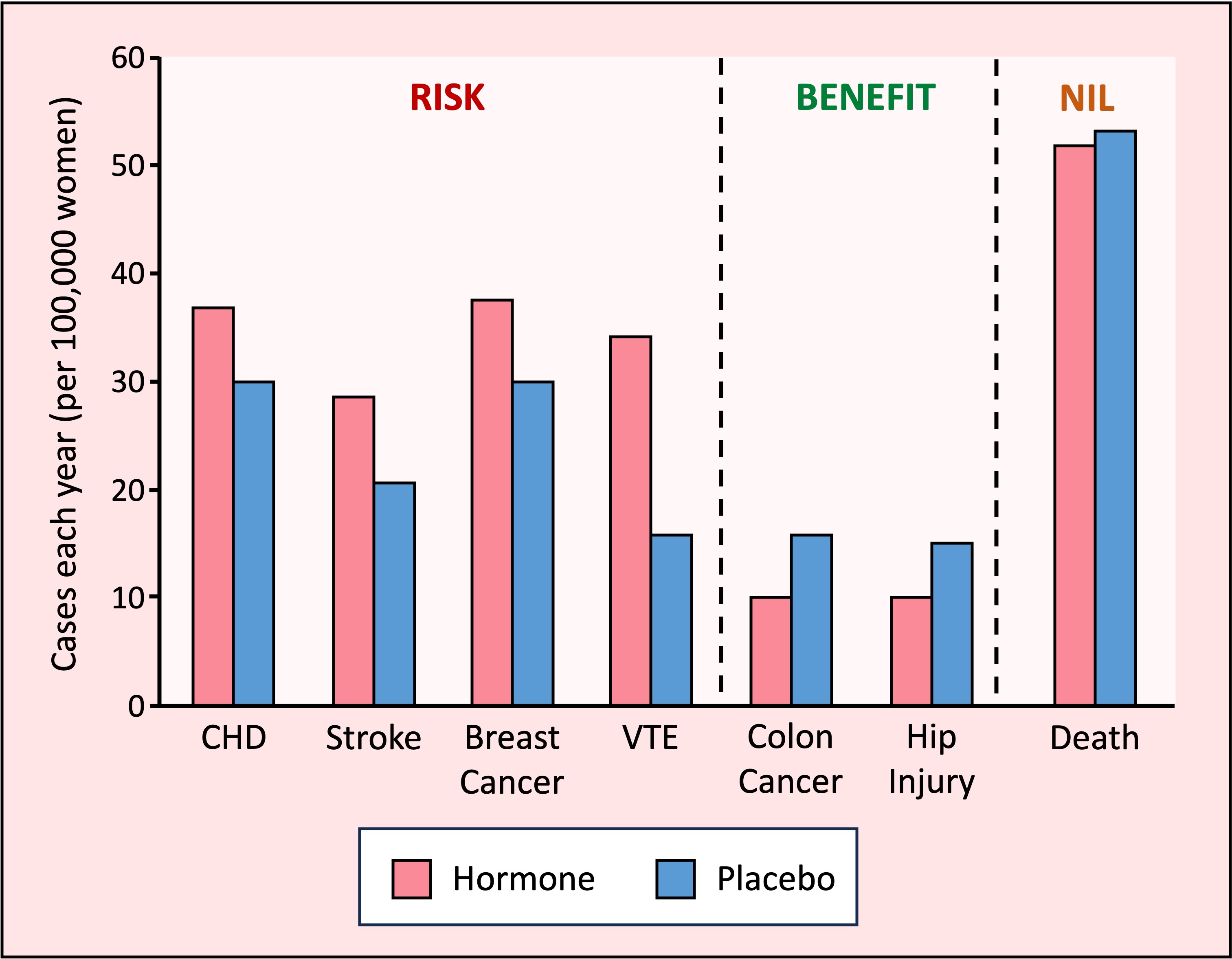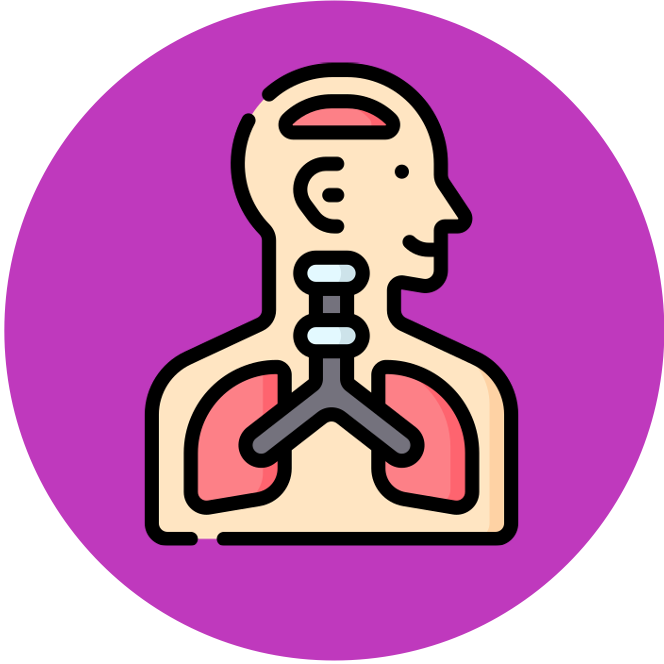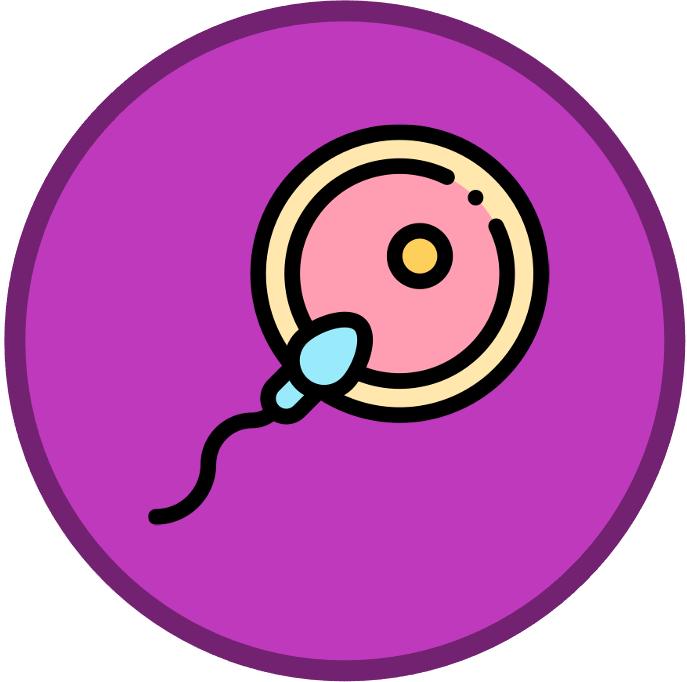

Hormone Therapy
Hormone replacement therapy has been used to reduce the symptoms associated with menopause
-
Menopause describes the permanent cessation of menstrual periods and results in the decreased production of female sex hormones (oestradiol and progesterone)
-
This causes symptoms such as hot flashes, vaginal dryness, night sweats and a reduction in libido
-
Menopausal women can be prescribed treatments of these sex hormones as a way of mitigating these symptoms
Early epidemiological studies suggested that hormone replacement therapies reduced the risk of coronary heart disease in post-menopausal women
-
Studies have shown that estrogen can lower cholesterol levels, promote vasodilation and reduce inflammation
More recent studies suggest that hormone replacement therapies are associated with a slightly elevated risk of coronary heart disease, breast cancer and stroke
-
Consequently, the use of hormone replacement therapy has decreased dramatically since the early 200s
There are multiple explanations for the disparate findings of the two studies:
-
The earlier study relied on observational data, while the later study involved randomised controlled trials
-
The observational study focused on women in their early menopausal years, while the controlled trials included women who were several years post-menopausal
-
Women who take hormone replacement therapy tend to be more affluent with a higher socioeconomic status, and thus have access to better healthcare
-
The link between hormone replacement therapy and better cardiovascular fitness may therefore have been a spurious correlation (and correlation does not equal causation)
-
Hormone Therapy Data

Observational Data





